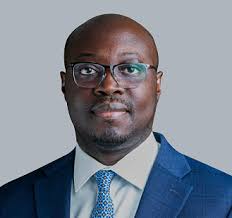
U.K. Prime Minister Keir Starmer is set to visit the White House. Here's what to know
Feb 28, 2025
by Ekow Benyah Sep 28, 2025

September 28, 2025
Finance Minister Dr. Cassiel Ato Forson has confirmed that the Deloitte audit report on the Development Bank Ghana (DBG) will be handed over to the Attorney General for possible legal action, in what he described as a decisive step to restore integrity at the state-backed lender.
Dr. Forson stressed that individuals found culpable would face consequences, declaring:The move follows consultations with major development partners including the World Bank, African Development Bank, Germany’s KfW, and the European Investment Bank all of whom have backed the government’s stance that accountability at DBG is “non-negotiable.”
Dr. Forson stressed that individuals found culpable would face consequences, declaring:
“A new dawn is beginning for DBG. Swift reforms are critical to rebuild the Bank’s credibility.”
Concerns over governance at DBG intensified last year after the World Bank acknowledged it was reviewing allegations of financial mismanagement. The claims, amplified by Bright Simons of IMANI Africa, suggested that more than GH¢400 million had been lost through improper contracting.
DBG has consistently denied wrongdoing, maintaining that no development partner funds had been misapplied.
With Deloitte’s findings now complete, the government says it is moving swiftly to reposition the Bank. A new Chief Executive Officer, selected through a competitive process, will be announced on Monday, while a reconstituted Board is expected by the end of October.
Interim Board Chair Albert Essien has pledged transparency and prudent governance, a commitment welcomed by development partners as Ghana works to realign DBG with its mission.
Established in 2021, the Development Bank Ghana was created as a wholesale development finance institution to provide medium- to long-term capital to businesses, particularly small and medium-sized enterprises (SMEs). Unlike commercial banks, DBG does not take deposits but works through partner financial institutions to channel affordable credit into priority sectors such as agribusiness, manufacturing, ICT, and infrastructure.
The Bank was intended to close Ghana’s long-standing financing gap for SMEs, drive industrial transformation, and reduce over-reliance on short-term, high-interest loans. Its credibility, therefore, is viewed as crucial for achieving the country’s economic diversification and job creation goals.

Feb 28, 2025

Oct 08, 2025

Oct 27, 2025

6 days ago

Sep 28, 2025

Oct 16, 2025

Sep 25, 2025

Oct 08, 2025